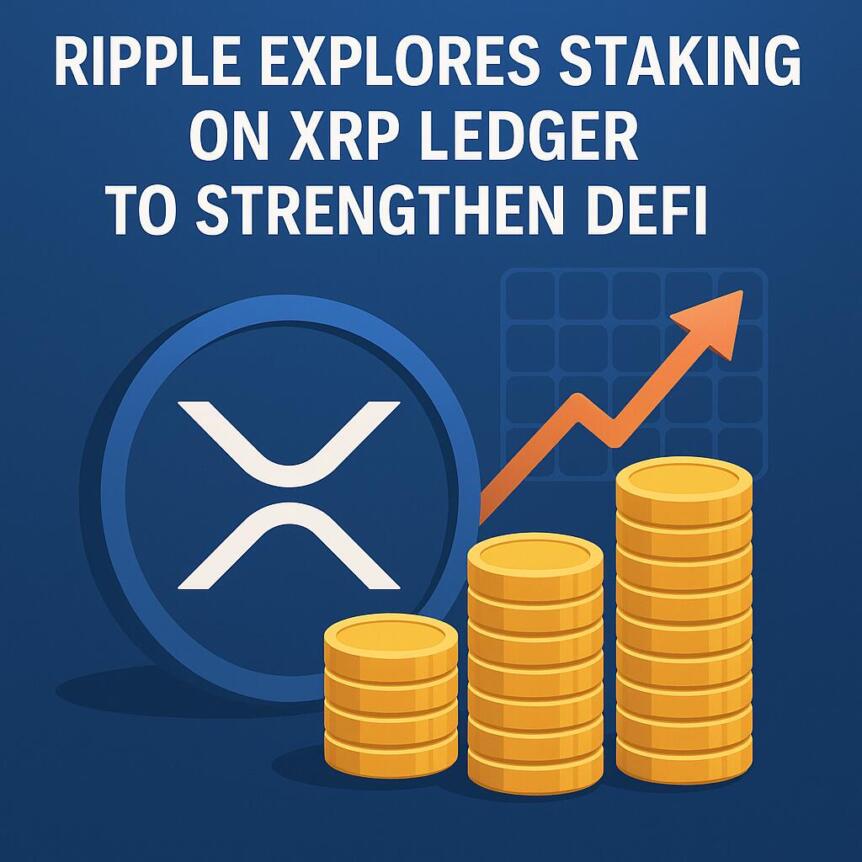
Ripple is intending to add staking to the XRPL, which would further its presence in the expanding world of DeFi. The company is of the opinion that staking may help increase the security of XRPL and foster long-term engagement. It is aware that such a feature would necessitate a substantial alteration in the architecture of the system.
When even Bitcoin Maxis start getting humbled, you know something’s shifting 👇🚨
In this clip, former Ripple $XRP dev Matt Hamilton confronts BTC bull DaVinci with cold, undeniable facts.
Including XRP’s original goal: To tokenize Bitcoin and fix what it couldn’t.
Let that… pic.twitter.com/NQRz5GGMX2
— X Finance Bull (@Xfinancebull) November 20, 2025
Ripple Evaluates Staking to Improve XRPL's Security and Engagement
Ripple is investigating the possibilities of the addition of stake in enhancing the security and increasing the involvement of token holders and validators. This may provide a competitive edge as XRP expands its utility, especially on a cross-border payment or corporate treasury. It feels that this would motivate more security and reliability of the networks by implementing long-term incentives to the participants.
With transaction fees being incinerated instead of sent back as bonuses, the implementation would necessitate some changes in this model and the organization. It is in the process of weighing between these modifications without losing the efficiency and affordability of the network to transfer values.
Although the transition to a reward-driven paradigm is a challenging one, it’s very much considering the opportunities that staking would offer. This transition may disturb the current Proof of Association model which places more emphasis on trust than economics. This would be an opportunity to create a long-term engagement on such complexities.
Ripple CTO Proposes Two Staking Models for XRP Ledger
Chief Technology Officer, David Schwartz provided two theoretical approaches to staking on the XRP Ledger. The former model suggests a two-layer consensus mechanism, and that would entail a stake-based selection of an incentivized inner layer consisting of approximately 16 validators. These validators would operate through the slashing processes to provide a push towards consensus on the ledger.
The second model would preserve the existing consensus system but add the verification of zero-knowledge proof. ZKPs would enable the participants to disclose facts without exposing any sensitive data, which in turn would be another security layer. Both models still remain in the concept stage and admit that the engineering work needed to make such changes is huge.
Although staking may be one of the possible ways to improve the security of the network, Ripple is wary of the complexity and risk involved in making the changes. The firm is keen to critically consider the advantages and then undertake any changes.
Ripple Seeks to Strengthen DeFi Position Through Staking on XRP Ledger
The adventure into staking is one of several initiatives that Ripple undertakes to increase its presence in the world of decentralized finance. This is developing in the context of an opportunity to increase participation and security. The company knows that such a step will demand profound transformations to the core principles and technical organization.
Whilst the possibility of the benefits is obvious, it will not compromise its foundational operations, like making cross-border payments fast and cheap. Which strives to improve the scalability of the network without losing its current strengths by paying due attention to all the options.
This is a consideration of the technical issues and the disturbances that it could cause the network. The company will keep experimenting with the implementation of this feature to the benefit of XRPL and its increasing user base in the decentralised finance sphere.
https://www.cryptobreaking.com/ripple-explores-staking-on-xrp/?utm_source=blogger%20&utm_medium=social_auto&utm_campaign=Ripple%20Explores%20Staking%20on%20XRP%20Ledger%20to%20Strengthen%20DeFi%20
Comments
Post a Comment